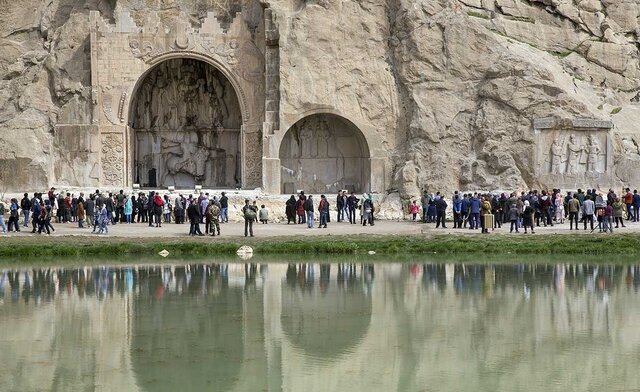Economic development in Kermanshah dependent on tourism

TEHRAN – Tourism plays a crucial role in economic development in the western province of Kermanshah, a local official has said.
Investing in Kermanshah in the coming years is most likely to benefit from tourism, which is the key to its economic development, ISNA quoted Farid Khalili as saying on Monday.
As a result of its natural and historical attractions, Kermanshah has excellent tourism potential, the official added.
There are few historical sites like Bisotun and Taq-e Bostan in the world, so they can attract tourists from all over the world, he noted.
In addition to these attractions, Kermanshah has a four-season climate, which allows tourists to visit even during cold weather, he mentioned.
Kermanshah embraces a variety of awe-inspiring historical sites, including Taq-e Bostan and the UNESCO-registered Bisotun.
Inscribed into the base of a towering cliff, Taq-e Bostan comprises extraordinary Sassanian bas-reliefs of ancient victorious kings to divide opinions. Late afternoon is the best time to visit, as the cliff turns a brilliant orange in the setting sun, which then dies poetically on the far side of the duck pond.
Bisotun is a patchwork of immense yet impressive life-size carvings depicting king Darius I and several other figures. UNESCO has it that Bisotun bears outstanding testimony to the important interchange of human values in the development of monumental art and writing, reflecting ancient traditions in monumental bas-reliefs.
Kermanshah was founded in the 4th century CE by Bahram IV of the Sassanid dynasty. Conquered by the Arabs in 640, it was called Qirmasin (Qirmashin). Under the Seljuk rule in the 11th century, it was the chief town of Kordestan. The Safavids (ruled 1501–1736) fortified the town, and the Qajars repulsed an attack by the Turks during Fath Ali Shah’s rule (1797–1834). Occupied by the Turkish army in 1915 during World War I, it was evacuated in 1917. The construction of a road in the 1950s over the age-old Khorasan track added considerably to the importance of the city.
ABU/AM
Leave a Comment